Introduction
What Vegetables Can Rabbits Eat: Rabbits are herbivorous animals that primarily feed on plant materials, including a variety of vegetables. Providing a well-balanced and nutritious diet is essential for their overall health and well-being. While rabbits can consume a wide range of vegetables, it’s important to be aware of which ones are safe for them to eat and which should be offered in moderation. A diverse and colorful selection of vegetables can offer essential vitamins, minerals, and fiber to support their digestive system and overall vitality.
However, it’s important to note that not all vegetables are suitable for rabbits. Some vegetables can be too high in sugar, starch, or even toxins, which could lead to digestive issues or other health problems. When introducing new vegetables into your rabbit’s diet, it’s recommended to start gradually and monitor their response.
Remember to wash all vegetables thoroughly to remove any pesticides or contaminants before offering them to your rabbits. Additionally, moderation is key; too much of even safe vegetables can upset a rabbit’s delicate digestive balance. Always observe your rabbits’ teeth reactions to new foods and consult a veterinarian if you have any concerns about their diet or health. Providing a diverse and well-balanced selection of vegetables, alongside hay and fresh water, will contribute to the health and happiness of your rabbit companions.
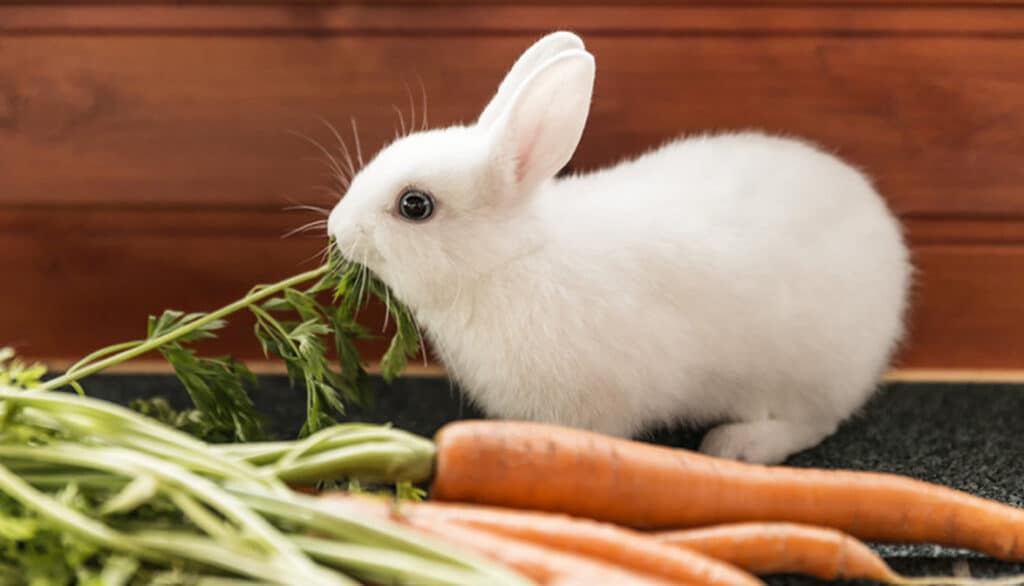
What vegetables can a rabbit eat daily?
Rabbits must have an adult-sized handful of safe, washed leafy green vegetables, herbs and weeds daily.
- Feed a variety of greens daily – ideally 5-6 different types, such as cabbage, kale, broccoli, parsley and mint.
- Introduce new types of greens gradually, in small amounts, to avoid potential stomach upsets.
Cruciferous Vegetables
Broccoli: Rich in fiber and vitamin C, offer broccoli leaves and stems for a nutritious treat.
Cauliflower: The florets are a good source of vitamins and fiber, but feed in moderation due to potential gas production.
Bell Peppers
Bell peppers, particularly red and yellow ones, are excellent sources of vitamin C. Their sweet taste and crunchy texture make them a rabbit favorite.
Carrots
Carrots are a classic rabbit treat. While they are high in natural sugars, they can be fed in moderation due to their vitamin A content.
Zucchini and Cucumber
These hydrating vegetables can be given occasionally. Remove the seeds to prevent excessive moisture intake.
Radicchio and Endive
These slightly bitter vegetables can be given in moderation to add variety to your rabbit’s diet.
Avoid High-Calcium Vegetables
Vegetables high in calcium, such as beet greens and Swiss chard, should be fed sparingly to prevent the risk of urinary issues.
What fruits and veggies can bunnies eat?
Good treats are small amounts of fruit such as strawberries, bananas, raspberries, pineapple pieces, apples without seeds, and melons. Veggie treats include a small amount of fresh carrot, pieces of green pepper, and Brussels sprouts. Make sure the fruits and veggies are thoroughly washed before feeding.
Leafy Greens: Leafy greens are a cornerstone of a rabbit’s diet, offering fiber, vitamins, and hydration. Suitable options include romaine lettuce, kale, spinach, and arugula.
Carrots: Carrots are a classic favorite, but due to their natural sugar content, they should be given in moderation.
Bell Peppers: Colorful and crunchy bell peppers are rich in vitamin C and can be a great addition.
Cucumbers: Hydrating and low in calories, cucumbers can be a refreshing treat for bunnies.
Zucchini: Remove seeds and offer small amounts of zucchini as a hydrating and low-calorie option.
Broccoli: Both the florets and leaves can be provided as an occasional source of vitamins and fiber.
Cauliflower: Small amounts of cauliflower can be introduced, but monitor for potential gas issues.
Celery: A fibrous and crunchy option that can be given in moderation.
Radishes: Offer small amounts of radishes for variety, ensuring they are washed thoroughly.
Can rabbits eat potatoes?
Potatoes
Although potatoes won’t necessarily poison rabbits, this human-favorite vegetable isn’t ideal for them. Potatoes are high in carbohydrates and starch, both of which can cause issues for your bunny’s digestive system.
Toxicity: Potatoes, along with their leaves, stems, and sprouts, contain compounds known as glycoalkaloids, specifically solanine and chaconine. These compounds are toxic to rabbits, even in small amounts. Ingesting them can lead to gastrointestinal upset, lethargy, and in severe cases, even death.
Digestive System Sensitivity: Rabbits have a delicate and specialized digestive system that is designed to process fibrous plant material. Potatoes are starchy vegetables that are hard for rabbits to digest properly. Consumption of starchy foods can disrupt their gut flora, leading to digestive disturbances like bloating, gas, and diarrhea.
High Starch and Carbohydrate Content: Potatoes are relatively high in starch and carbohydrates, which can lead to weight gain and obesity in rabbits. Overweight rabbits are at a higher risk of health issues, including joint problems and a reduced lifespan.
Nutritional Imbalance: While rabbits need a diet rich in fiber, vitamins, and minerals, potatoes do not offer the necessary nutrients that are beneficial to them. Feeding potatoes could potentially displace healthier foods from their diet, leading to a lack of essential nutrients.
Hygiene and Preparation: Even if the toxicity concern is addressed by removing the toxic parts of the potato, there’s still a risk of contamination. Potatoes might have traces of pesticides or other chemicals on their skin, which could be harmful to rabbits.
Can rabbits eat banana?
Rabbits should not be given more than 2 tablespoons of banana per 5 pounds of their body weight, 2-3 times a week. As a general rule, you should never feed a rabbit a piece of banana that’s larger than the size of your thumb.
Moderation is Key: Bananas are relatively high in natural sugars, which can be problematic if consumed excessively. Offer small portions as an occasional treat rather than making them a regular part of your rabbit’s diet. A small slice of banana is typically sufficient to satisfy their taste buds without overwhelming their sensitive digestive system.
Nutritional Benefits: While bananas are a sugary treat, they also bring nutritional benefits to the table. Bananas are rich in potassium, vitamin B6, and vitamin C, which can contribute to your rabbit’s overall health. However, these nutrients are not as essential for rabbits as they are for humans. The majority of a rabbit’s diet should still consist of high-quality hay and fresh leafy greens.
Digestive Caution: Rabbits have a sensitive digestive system that is adapted for processing fibrous plant materials. Introducing new foods, including fruits like bananas, should be done gradually to avoid digestive upsets. Monitor your rabbit’s response after offering a small amount of banana, and if any signs of discomfort or diarrhea occur, discontinue the treat.
Peel and Preparation: When offering bananas to your rabbit, make sure to remove the peel. The peel is tougher and harder to digest compared to the flesh of the fruit. Cut the banana into small, bite-sized pieces to prevent choking hazards.
Variety in Moderation: Bananas can be part of a well-rounded treat repertoire for your rabbit, alongside other safe fruits and vegetables. Diversity in treats helps prevent monotony in their diet and provides enrichment.
Observe Dietary Restrictions: If your rabbit has health conditions such as diabetes or weight issues, it’s best to consult with a veterinarian before introducing bananas or any other new treat. These conditions may require stricter dietary management.
Do rabbits eat tomatoes?
ANSWER: Yes, rabbits will eat tomatoes. They don’t only enjoy the plants themselves but also the fruits. Rabbits are herbivores. This means that they enjoy a variety of plants and greens.
Ripe Red Tomatoes: Ripe red tomatoes, in small quantities, can be consumed by rabbits without posing immediate harm. The ripe, fleshy portion of the tomato contains fewer harmful compounds compared to the unripe or green parts of the plant.
Tomato Plant Parts: It’s crucial to avoid offering rabbits any green parts of the tomato plant, including the leaves, stems, and unripe fruit. These parts contain substances like solanine and tomatine, which can be toxic and lead to gastrointestinal upset and discomfort in rabbits.
Moderation: While offering small amounts of ripe tomatoes is permissible, moderation is key. Tomatoes are relatively high in natural sugars, and overfeeding them can lead to digestive problems such as diarrhea or bloating.
Digestive System Sensitivity: Rabbits possess a delicate and specialized digestive system designed for breaking down fibrous plant materials. Introducing new foods, including tomatoes, should be done gradually and in limited quantities to prevent digestive disturbances.
Nutritional Value: Tomatoes offer certain vitamins and nutrients that can be beneficial for rabbits in moderation. They contain vitamin C, potassium, and antioxidants. However, it’s important to note that the core elements of a rabbit’s diet should primarily consist of hay, fresh leafy greens, and appropriate rabbit pellets.
Allergic Reactions: As with any new food, individual rabbits may react differently. Some rabbits might have allergies or sensitivities to tomatoes. It’s essential to observe your rabbit closely for any adverse reactions after introducing tomatoes into their diet.
Preparation: If you choose to share tomatoes with your rabbit, ensure they are thoroughly washed to remove any potential pesticide residues. Offer the ripe, red parts in small, manageable pieces to prevent choking hazards.
Water Intake: Tomatoes have a high water content, which can contribute to a rabbit’s hydration. However, this should not replace the need for a consistent supply of fresh water.
Can a rabbit drink milk?
Can rabbits drink milk? You should not give rabbits milk to drink. Adult rabbits are lactose intolerant and milk products are bad for the rabbit’s digestive system. Baby rabbits should also not have cow’s milk because it is very different from the milk they get from their mothers.
Lactose Intolerance: Like many adult mammals, rabbits are lactose intolerant. This means that their digestive systems are not equipped to properly break down lactose, the sugar found in milk. Introducing milk to a rabbit’s diet can lead to digestive disturbances, including diarrhea, gas, and discomfort.
Nutritional Mismatch: Rabbits have unique dietary requirements primarily centered around fiber-rich foods, such as hay and fresh leafy greens. Milk does not provide any nutritional benefits that are essential for rabbits. Their sensitive digestive systems are designed to process fibrous plant materials, not dairy products.
Upset Gut Flora: Rabbits have a delicate balance of gut flora that plays a crucial role in their digestion. Introducing milk can disrupt this delicate balance, potentially leading to more severe gastrointestinal issues.
Dehydration Risk: Providing rabbits with milk might inadvertently lead to dehydration. This is because milk is not a natural part of their diet, and it can cause rabbits to drink less water, which is essential for their overall well-being.
Potential Harm: While it might seem harmless to offer a small amount of milk as a treat, the risks of digestive upset and potential harm to your rabbit’s health outweigh any perceived benefits.
Can rabbits eat chapati?
You should NOT give your rabbit rice or roti or any wheat based item like bread or pasta. Even raw fruits should only be given in small quantities. Rabbits can enjoy a variety of fresh leafy vegetables such as coriander, spinach, carrot tops or lettuce and also hay.
Nutritional Composition: Chapati primarily consists of wheat flour, water, and potentially a bit of oil or ghee. While wheat is not inherently toxic to rabbits, their digestive systems are tailored to process fibrous plant material. Wheat flour lacks the fiber content that is essential for a rabbit’s digestion, potentially leading to digestive upsets.
Starchy Content: Wheat flour, being a carbohydrate-rich food, can contribute to weight gain in rabbits if consumed in larger amounts. Rabbits are prone to obesity, which can lead to a range of health issues.
Digestive Sensitivity: Rabbits have a delicate and specialized digestive system. Introducing new foods, especially those that are not part of their natural diet, can disrupt the balance of their gut flora and lead to digestive discomfort.
Food Safety: When considering sharing human food with rabbits, it’s crucial to avoid adding any spices, seasonings, or additives that might be harmful. Additionally, rabbits have specific dietary requirements that must be met for optimal health, which may not align with our own dietary preferences.
Dietary Priorities: The core components of a rabbit’s diet are high-quality hay, fresh leafy greens, and appropriate rabbit pellets. These elements provide the necessary nutrients, fiber, and hydration to keep your rabbit healthy.
What should I feed my rabbit daily?
What do rabbits eat? Rabbits should have a daily diet of mostly hay, a smaller amount of fresh vegetables, and a limited number of pellets. Hay is the most important part of a rabbit’s daily intake. Unlimited, high-quality grass hay, such as Timothy, orchard or brome, should make up the bulk of a rabbit’s diet.
High-Quality Hay:The foundation of a rabbit’s diet should be high-quality hay. Hay provides essential fiber that aids in digestion, keeps their teeth naturally worn down, and prevents issues like gastrointestinal stasis. Offering unlimited access to fresh hay, such as timothy hay, orchard grass, or meadow hay, is crucial for your rabbit’s well-being.
Fresh Leafy Greens:Alongside hay, include a variety of fresh, rabbit-safe leafy greens in your rabbit’s diet. Leafy greens are rich in vitamins and minerals that contribute to their overall health. Some suitable options include romaine lettuce, kale, spinach, parsley, cilantro, and dandelion greens. Introduce new greens gradually to prevent digestive upsets.
Rabbit Pellets:High-quality rabbit pellets can be a part of your rabbit’s diet, but they should be fed in moderation. Choose pellets that are specifically formulated for rabbits and free from artificial additives. Pellets should comprise a smaller portion of their diet compared to hay and fresh greens.
Fresh Water:Ensure your rabbit has access to fresh, clean water at all times. Hydration is essential for their overall health and helps prevent issues like urinary tract problems.
Limited Treats:While it’s tempting to offer treats, they should be given sparingly. Treats can include small portions of rabbit-safe fruits (e.g., apples, berries) and vegetables (e.g., carrots, bell peppers), but they should not make up a significant portion of their diet due to the natural sugars they contain.
Dietary Consistency:Maintaining consistency in your rabbit’s diet is crucial. Abrupt changes in their diet can lead to digestive upsets. If you plan to introduce new foods or make significant dietary adjustments, do so gradually over several days.
Avoid Harmful Foods:Some foods are toxic to rabbits and should be strictly avoided. These include chocolate, onions, garlic, high-sugar treats, and foods that are high in starch or carbohydrates.
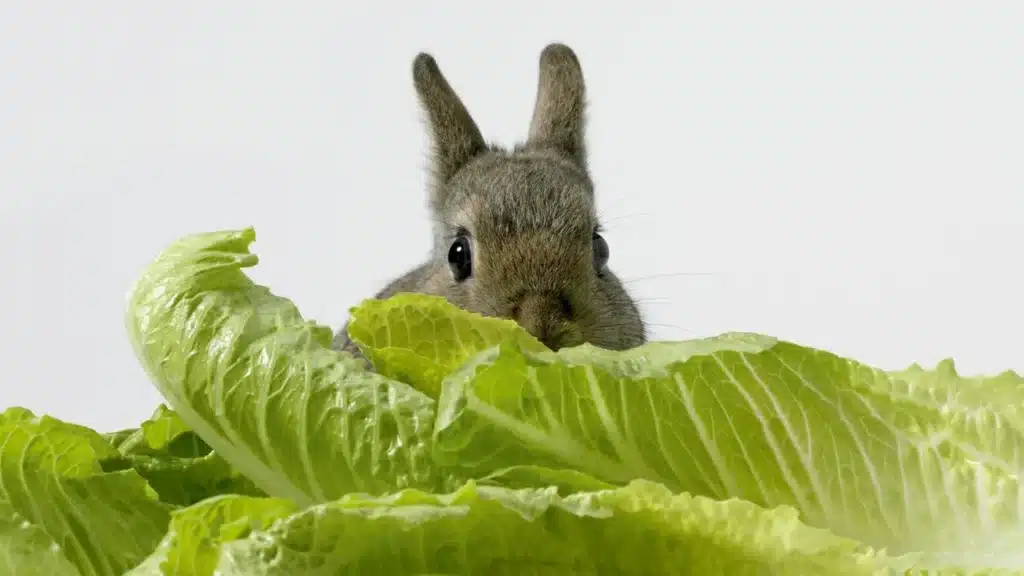
Conclusion
Rabbits, those adorable and furry herbivores, have a special dietary preference for vegetables that goes beyond their innate cuteness. These small mammals thrive on a diet primarily composed of plant materials, and incorporating vegetables into their meals can provide them with a spectrum of essential nutrients, fiber, and hydration. However, not all vegetables are suitable for rabbits, and their delicate digestive systems necessitate a cautious approach to what’s on the menu.
A colorful array of vegetables can offer rabbits not only vital nourishment but also an engaging culinary experience. From leafy greens that contribute to their daily vitamin intake to crunchy favorites that help maintain dental health, the right vegetables can truly enhance a rabbit’s overall wellness.
Yet, the rabbit’s menu isn’t as wide-ranging as one might think. Some vegetables, if consumed in excess or if they contain harmful compounds, could lead to digestive distress or more serious health issues. Therefore, understanding which vegetables are safe and beneficial for rabbits is key to fostering their vibrant health and lively nature.
In this exploration of rabbit nutrition, we’ll delve into the world of rabbit-friendly vegetables, exploring not only the vibrant selection of options but also the guidelines for introducing these goodies into a rabbit’s diet. By delving into the world of rabbit culinary choices, we can uncover the colorful and nutritious array of vegetables that contribute to their well-being and offer a glimpse into the fine art of feeding these charming herbivores.

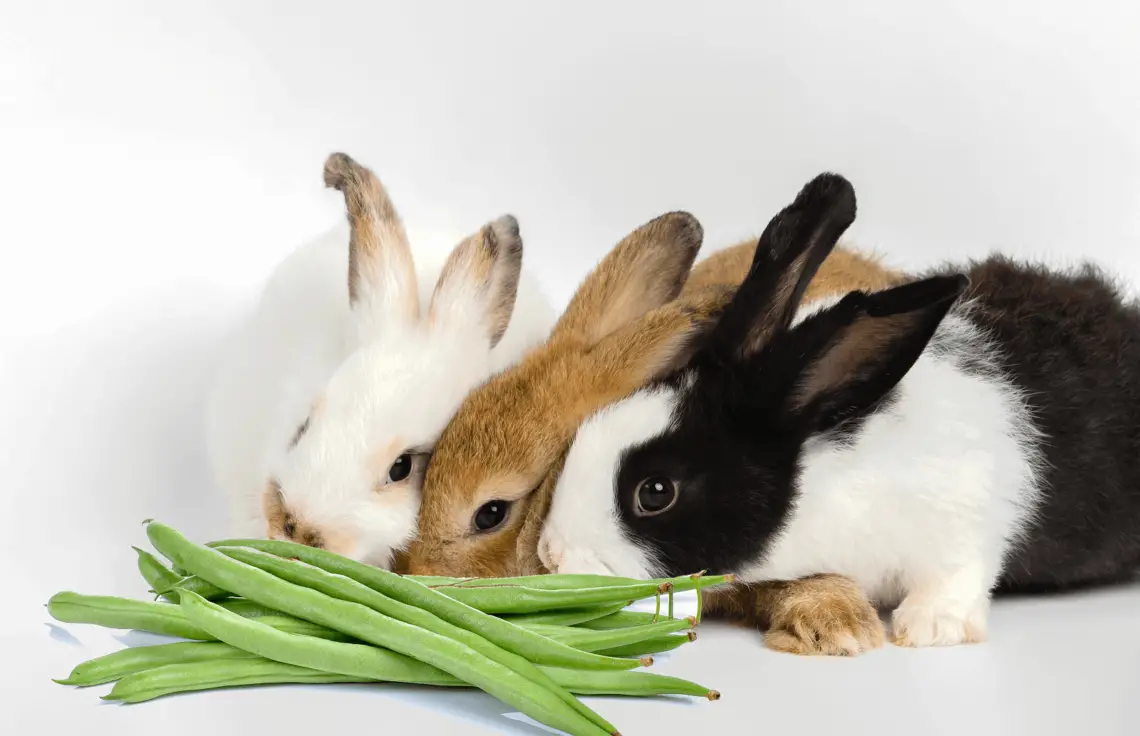
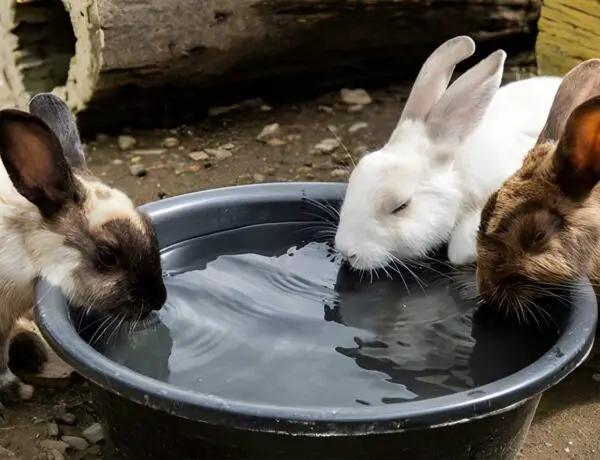
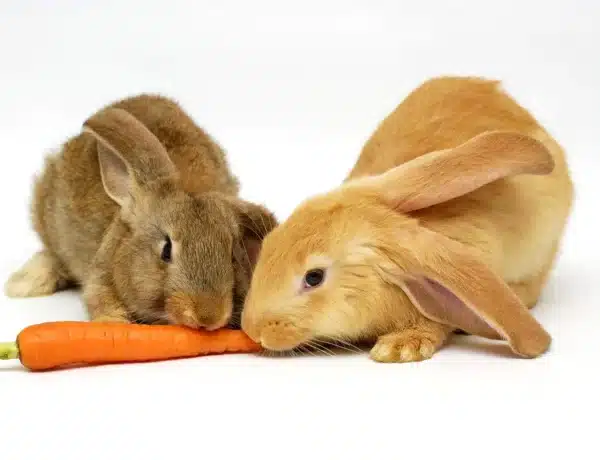
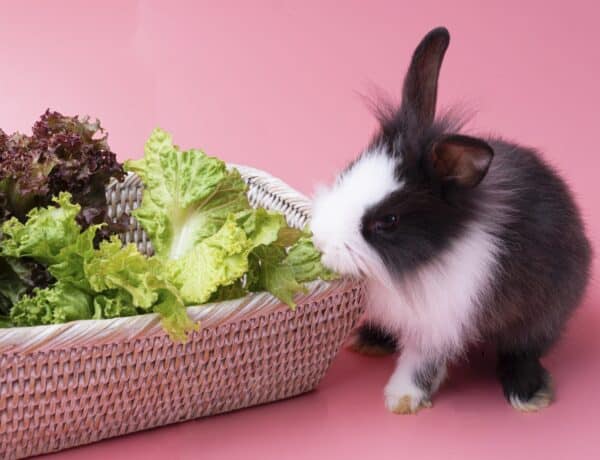
No Comments